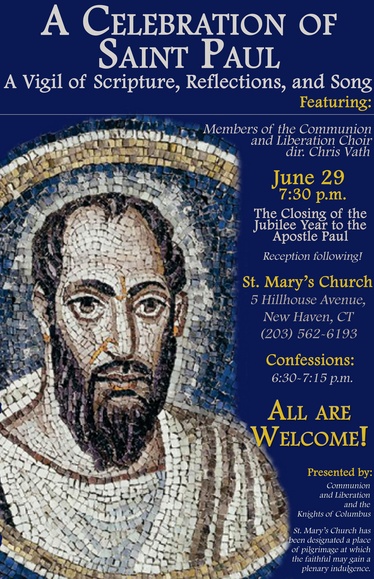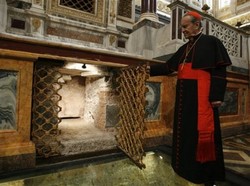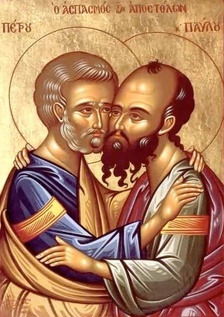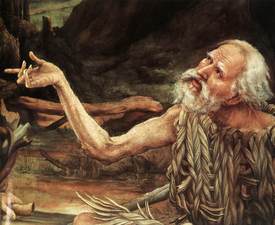Catholics and Orthodox Christians are celebrating a Pauline year from June 28, 2008, to June 29, 2009.
 A prime characteristic of St. Paul‘s legacy, the archbishop said, was his “adherence to the absolute nature of the truth of the Gospel.” St. Paul saw the Gospel “not as an abstract, theoretical truth,” but a truth grounded in the person of Jesus, who died and is risen.
A prime characteristic of St. Paul‘s legacy, the archbishop said, was his “adherence to the absolute nature of the truth of the Gospel.” St. Paul saw the Gospel “not as an abstract, theoretical truth,” but a truth grounded in the person of Jesus, who died and is risen.
Christ crucified represents “the medicine of first resort for every spiritual weakness” and thus there can be “no possibility of compromise.” According to St. Paul, to be a pastor is to offer that Gospel with integrity.
St. Paul insisted on overcoming human distinctions among believers. “There is a school of thought” that divisions within a group must be accepted as part of the fallen human condition, but St. Paul rejected such thinking.
“What is the church” but the body of Christ, allowing for no divisions. St. Paul specifically denounced distinctions among Jews and Greeks and rich and poor because any such distinctions are to be subordinated to unity in Christ.
“We encounter the word ‘brother’ 34 times” in St. Paul‘s writings, driving home the point that in Christ “any other distinction is secondary.”
In addition, St. Paul emphasized “the plan of God for salvation for all people.”
St. Paul traveled “the farthest reaches of the Roman Empire” in his zeal to draw souls to Christ. Closely related is St. Paul‘s adherence to the pastoral care of souls, which the apostle freely expressed in his writings. St. Paul wrote to his disciples that he prayed for them and thanked God for them. “What an incredible difference it would make if every pastor” showed such zeal for his people.
While “self-styled apostles” took advantage of the people to whom they preached, “St. Paul took the opposite approach,” accepting nothing and refusing “to be a burden.” Rather, St. Paul demonstrated “pastoral passion,” comparing himself to a father or to a nurse caring for a child.
(Archbishop Demetrios, Sixth Annual Cardinal Anthony Bevilacqua Lecture (Nov. 23), Immaculate Conception Seminary, Rockville Centre Diocese, Pete Sheehan for CNS, Dec. 2, 2008, adapted)
 “Hear the signs of true believers–
“Hear the signs of true believers–





